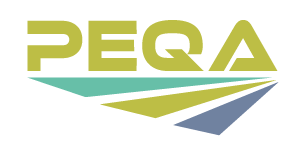Takeaways for VR Counselors & Administrators
Background
In recent years state vocational rehabilitation agencies have adopted Motivational Interviewing (MI) to revitalize vocational counseling and guidance in the federal/state vocational rehabilitation system. Previous research shows that MI can promote a strong working alliance between the client and the therapist, which was associated with successful employment outcomes, job satisfaction for employed consumers, and a more positive outlook on future employment prospects for those who were unemployed.
Although, MI has been shown to be a promising technique for use in vocational rehabilitation, the ability to commit time and resources to training can be an obstacle to the implementation of MI for state agencies.
Purpose of the study
According to the Motivational Interviewing Network of Trainers, introductory workshops involve 2 to 3 days of training, with an additional 2 to 3 days required for the intermediate and advanced levels. The purpose of this study was to assess whether a one-day introductory MI training could affect the perception of the participant’s ability to use MI as part of the vocational rehabilitation process.
Methods
Sixteen staff members from the South Carolina Commission for the Blind (SCCB) participated in a one-day introductory MI workshop. The training program, Motivational Interviewing for Vocational Counselors, was developed by the Vocational Rehabilitation Technical Assistance Center for Targeted Communities (TC TAC): Project E3: Educate, Empower, and Employ.
A pre- and post-training survey design was used to assess whether a one-day MI training program could affect how participants perceived their ability to use MI as part of the vocational rehabilitation process. The survey was composed of items developed by the Virginia Commonwealth University, Rehabilitation Research and Training Center.
The items assessed working alliance, consumer engagement, confidence in using MI, barriers to using MI, and effect of use of MI in vocational rehabilitation based on a five-point Likert scale. A paired sample t-test was used to determine if there were statistically significant differences between the mean pre- and post-training ratings of the participants.
Results
A statistically significant increase and moderate effect size (t = 3.5668, p < .01; Cohen’s d = 0.6581) was observed between pre- and post-training. The factors that contributed to the result were the counselor’s confidence in using MI to help consumers resolve ambivalence about change in favor of change, the ability to build rapport, to manage resistance, and to listen to the client instead of giving advice.
Barriers to using MI
A statistically significant reduction and moderate effect size (t = 2.1882, p < .05; Cohen’s d = 0.6571) was observed between pre- and post-training.
The factors that contributed to the result were collective support for using MI among coworkers, evidence that supports the use of MI in vocational rehabilitation, current use of MI to help clients deal with motivation to work issues, and proficiency in the use of MI to help consumers deal with psychosocial and vocational rehabilitation issues.
Implication for practice or future research
The results suggest that a one-day MI training seminar can increase a participant’s confidence to use MI and the underlying principles and decrease the perception of personal and organizational barriers to the use of MI in the vocational rehabilitation process. The findings of this indicate that additional research on the effect of introductory, time-limited training on the use of MI in the vocational rehabilitation process is warranted.
Also, research to evaluate the effect of the use of MI on employment outcomes (i.e. MI versus Non-MI groups) and the quality of the employment (e.g. job match, salary, and benefits) is needed as part of the development of a comprehensive data base related to the use of MI in vocational rehabilitation.
Lessons learned / recommendations
The capstone project is essential to the PEQA training because the process immerses participants in the development and/or assessment of the use of evidence‐based practices in the vocational rehabilitation system.
The implementation of MI can be facilitated by an introductory, time‐limited training; however, introductory training without follow‐up has not been shown to be effective in establishing and maintaining MI skills.
Resources
- Capstone Project Summary (PDF)
- Capstone Project Poster: WORD | Powerpoint
References
Boardman, T., Catley, D., Grobe, J., Little, T., & Ahluwalia, J. (2006). Using motivational interviewing with smokers: Do therapist behaviors relate to engagement and therapeutic alliance? Journal of Substance Abuse Treatment. 64(6), 527-537.
Chan, F., Travydas, V., Blalock, K., Strauser, D., & Atkins, B. (2009). Unifying and elevating rehabilitation counseling through model-driven, diversity-sensitive evidence-based practice. Kinesiology and Community Health, Special Edition, 52(2), 114-119.
Lustig, D. C., Strauser, D. R., Rice, N. D., & Rucker, T. F. (2002). The relationship between working alliance and rehabilitation outcomes. Rehabilitation Counseling Bulletin. 46(1), 25-33.
Madison, M., Loignon, A., & Lance, C. (2009). Training in motivational interviewing: A systematic review. Journal of Substance Abuse Treatment, 36, 101-109.
Manthey, T. J. (2013). A pilot study of introductory motivational interviewing for supported employment case managers. International Journal of Psychosocial Rehabilitation, 18(1), 133-138.
Torres, A. (2017). The impact of motivational interviewing training on rehabilitation counselors: Assessing working alliance and consumer engagement – A randomized controlled trial (Unpublished doctoral dissertation) Florida Atlantic University, Boca Raton, Florida.
Capstone projects
More Capstone Projects: Capstone Project Hub.

